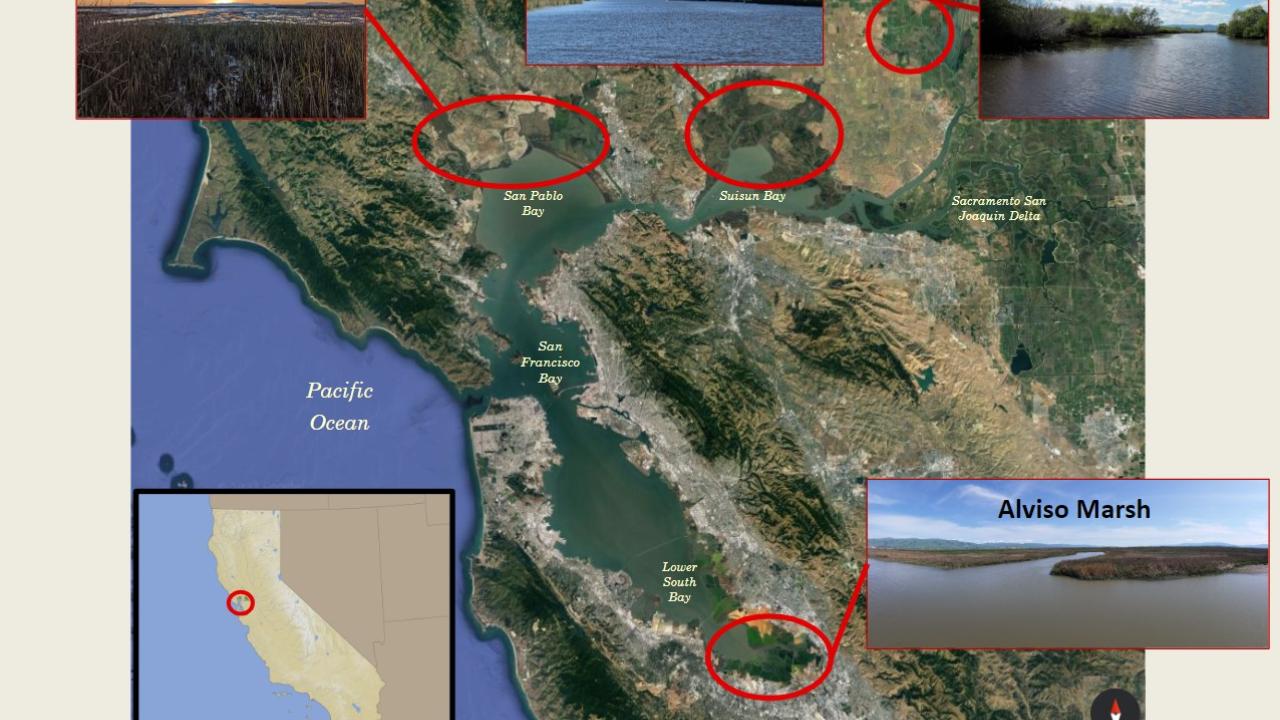
New Synthesis Incubator: Fish conservation with foresight
Quick Summary
- This project will compare fish communities between major regions of the system and model fish data to see how species of interest respond in these different places to changes in the environment.
- This first quantitative regional comparison of wetland fish communities throughout the San Francisco Estuary will improve understanding of wetland functionality and fish conservation needs in the system.
- Learn more about the project at https://watershed.ucdavis.edu/fish-conservation-foresight
The Center for Watershed Sciences is excited to share a new funded Synthesis Incubator project to construct the first quantitative regional comparison of wetland fish communities throughout the San Francisco Estuary. Congratulations to PIs Caroline Newell, and Drs. Mikaela Provost, Levi Lewis, John Durand, and James Hobbs!
The "Fish Conservation with Foresight" incubator aims to help improve our current understanding of wetland fish dynamics across the San Francisco Estuary. The results will provide a broad, estuary-wide understanding of how wetland fish communities are likely to respond to environmental variability and ecosystem management. By taking a cross-regional approach, the team will be able to examine how impacts play out differently across the estuary and how communities of fish may shift within and across regions with future impacts. By revealing which species may be sensitive to future impacts from climate change and resource management, the team hopes to draw attention to conservation and restoration needs before they are urgent. Conservation actions can take a long time to be implemented so being able to anticipate future needs helps ensure that those actions happen in time to achieve their goals.
The team will analyze fish monitoring data from major regions of the estuary, including Lower South Bay (Alviso Marsh), San Pablo Bay (Petaluma and Napa-Sonoma Marshes), Suisun Bay (Suisun Marsh), and the Sacramento San Joaquin Delta (Cache-Lindsay slough complex) (see figure). The team will compare fish abundances, biomass, diversity, and community structure of wetland fish communities among these habitats. This comparison will deepen the understanding of wetland functionality for fishes throughout the estuary. The team will also examine what water conditions species are associated with to better understand how water conditions alter habitat suitability for key species of interest. The team will take a multi-modeling approach to analyze the data. Ecologists typically only use one modeling approach but by using multiple techniques, the team hopes to compare results across models to ensure their findings are true. This is not often done in ecological studies but is beneficial when trying to understand how a wide variety of species respond to their environments.
This incubator project lays the groundwork for many possibilities for future work. These results may be used to inform future work assessing climate change impacts, evaluating restoration efforts, identifying climate refuges for species, and assessing impacts of changes in flow management. The project team is eager to explore how outputs from multiple modeling techniques can be used to assess fish species’ water quality sensitivity. Through data synthesis, this incubator will kick-start opportunities for conserving at-risk species before risks are realized. By doing so, we can align the timing of management actions with real-time environmental changes for meaningful results. The project team hopes this incubator will improve climate resiliency for wetland fish conservation in the SFE.
Learn more about the project here. View all funded Incubator proposals here.
